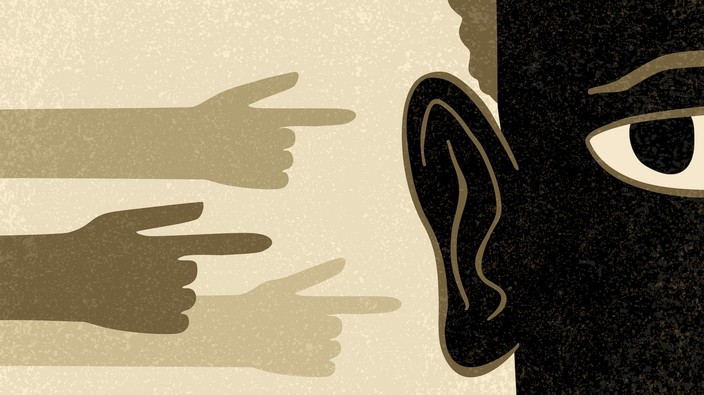race, economic status affect depression treatment outcomes
even people receiving identical treatment for depression will see different levels of improvement based on social determinants of health, according to a new study.

many studies have found that living with racism and other forms of discrimination can have detrimental effects on both physical and mental health. getty
even two people receiving identical treatment for depression can have very different outcomes depending on their race, education level and employment status, according to a new study from the university of cincinnati. the research makes it clear that even if patients are able to access treatment — which can be a major hurdle in itself — the social determinants of health still play a deeply significant role in how successful that treatment will be.
“someone employed at a higher wage has a chance to improve their socioeconomic status and environment, and so they’re definitely less likely to get mental health problems,” said professor jeffrey mills, one of the study’s co-authors. and “if people with higher socioeconomic status do get mental health problems, what we’re showing is they’re more likely to improve if they get treatment.”
the study, published in the journal psychiatric services, looked at data from 665 patients who sought treatment for depression. after the patients had been using antidepressants for 12 weeks, the scientists found that patients of colour had a 11.3 per cent lower recovery rate than white patients, while people without a college degree had a 9.6 per cent lower recovery rate than people with more education. patients without a job had 6.6 per cent less improvement than patients who were employed, and patients in the 25th percentile of income distribution were 4.8 per cent less likely to improve than those in the 75th percentile.
advertisement
“we think about these things in terms of access, we think about them in terms of income inequality, and i realize that education does track with those, but just having a college degree while controlling for all of these other factors still had a significant impact,” prof. jeffrey strawn, the study’s other co-author, told the university’s news outlet. the difference between outcomes related to education level was one of the ones that surprised him, he said.
barriers to health mean less chance of improvement
of course, these factors are interconnected — many patients deal with many of these socioeconomic impacts at the same time. compared to patients with depression who were white, college-educated and employed with income in the 75th percentile of income distribution, patients who were non-white, unemployed with no degree and with income in the 25th percentile were 26 per cent less likely to improve.
“so this is, ‘i was able to pay my rent this month, but i’m not sure that i will be able to next month. and i have a job right now, but i don’t know that i will next month,’” strawn said. “so it’s just the impact of all those things as well as maybe having relatives or kids who have fewer educational resources or other job-related stress, or potentially other health problems, and you’re still running into those same barriers in terms of access and cost and support there.”
advertisement
the researchers suggested that the stress level of people of colour and of people with lower education levels and lower income was likely a major factor in those discrepancies. many studies have found that living with racism and other forms of discrimination can have detrimental effects on both physical and mental health.
one 2019 study, for example, found that experiencing discrimination every day was associated with “a two-fold risk of having two disorders and a three-fold risk of having three or more disorders.” and while discrimination can contribute to the development of illnesses, it can also lead to inadequate treatment: a 2008 report found that in american emergency rooms where people were treated for bone fractures and kidney stones — conditions where pain management treatment is standardized — black and latino patients were less likely than white patients to receive enough pain medication.
another important factor, the researchers said, is the environment where patients live as they attempt to treat their mental illnesses. how many stressors or responsibilities await them at home?
“if you’re going home to a wealthy neighbourhood with highly educated parents or spouse, then you’re arguably in a much better environment for the treatment to be effective than if you’re going to a poor neighbourhood with other problems,” said mills.
advertisement
the researchers say these kinds of socioeconomic factors — race, income, education level and so on — should be built into future studies, since they clearly have a major impact on health.
“when we don’t control for these variables, which we often do not in our clinical trials because of differences in populations, we may miss detecting an effective treatment because its effect is obscured,” strawn said. “it can potentially jeopardize our treatment development by not accounting for these factors.”
maija kappler is a reporter and editor at healthing. you can reach her at mkappler@postmedia.com
thank you for your support. if you liked this story, please send it to a friend. every share counts.
 4 minute read
4 minute read





